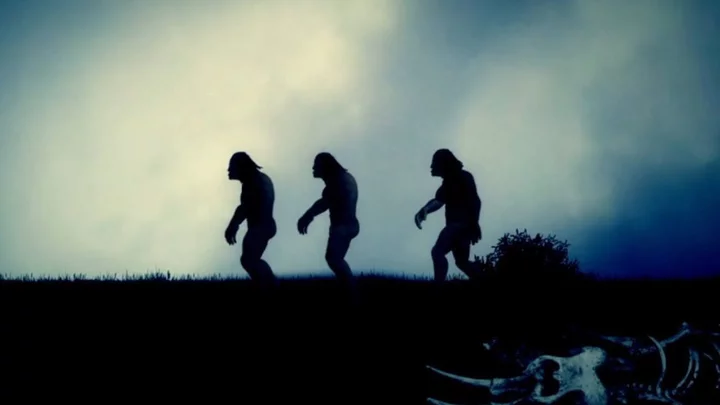The terrifying time our early ancestors almost became extinct
New research has shown that our early ancestors almost went extinct some 900,000 years ago. Using a new method called FitCoal (fast infinitesimal time coalescent process), researchers analysed the likelihood of present-day genome sequences to project current human genomic variation backwards in time. They applied the technique to the genomes of 3,154 people from 10 African and 40 non-African populations, and found a massive crash in genetic diversity during the transition between the early and middle Pleistocene. “Results showed that human ancestors went through a severe population bottleneck with about 1,280 breeding individuals between around 930,000 and 813,000 years ago,” the study authors wrote in the journal Science. “The bottleneck lasted for about 117,000 years and brought human ancestors close to extinction,” they say. Wiping out roughly 98.7 percent of the ancestral human population, “the bottleneck could also have increased the inbreeding level of our ancestors, thus contributing to the 65.85 percent loss in present-day human genetic diversity,” explained the researchers. This probably happened because of changes in the global climate as short-term glaciations became longer-lasting, triggering a drop in ocean temperatures, prolonged drought, and the loss of large numbers of species that humans might have relied on for food. Then, around 813,000 years ago, populations finally recovered, with a 20-fold increase in numbers because of fire combined with the return of warmer temperatures, researchers reckon. What a near miss, eh? Sign up to our free Indy100 weekly newsletter Have your say in our news democracy. Click the upvote icon at the top of the page to help raise this article through the indy100 rankings.

New research has shown that our early ancestors almost went extinct some 900,000 years ago.
Using a new method called FitCoal (fast infinitesimal time coalescent process), researchers analysed the likelihood of present-day genome sequences to project current human genomic variation backwards in time. They applied the technique to the genomes of 3,154 people from 10 African and 40 non-African populations, and found a massive crash in genetic diversity during the transition between the early and middle Pleistocene.
“Results showed that human ancestors went through a severe population bottleneck with about 1,280 breeding individuals between around 930,000 and 813,000 years ago,” the study authors wrote in the journal Science. “The bottleneck lasted for about 117,000 years and brought human ancestors close to extinction,” they say.
Wiping out roughly 98.7 percent of the ancestral human population, “the bottleneck could also have increased the inbreeding level of our ancestors, thus contributing to the 65.85 percent loss in present-day human genetic diversity,” explained the researchers.
This probably happened because of changes in the global climate as short-term glaciations became longer-lasting, triggering a drop in ocean temperatures, prolonged drought, and the loss of large numbers of species that humans might have relied on for food.
Then, around 813,000 years ago, populations finally recovered, with a 20-fold increase in numbers because of fire combined with the return of warmer temperatures, researchers reckon.
What a near miss, eh?
Sign up to our free Indy100 weekly newsletter
Have your say in our news democracy. Click the upvote icon at the top of the page to help raise this article through the indy100 rankings.









